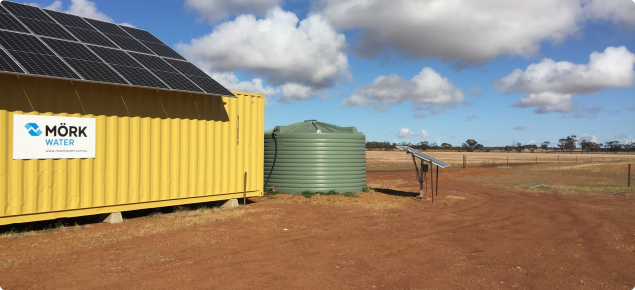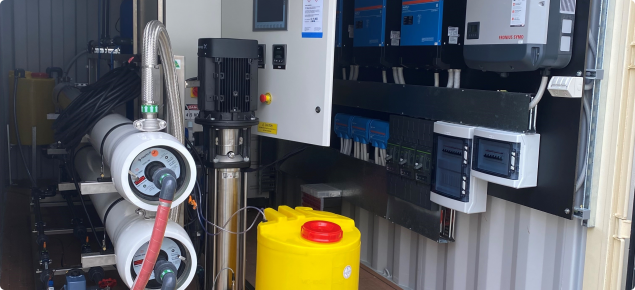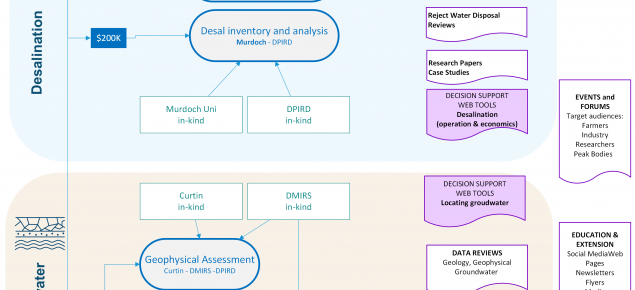Decision support tools
WaterSmart Farms is producing a series of support tools that will assist farmers and other industry stakeholders to make informed decisions.
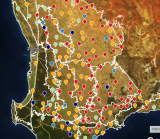 | Groundwater and Salinity Interactive Map
|
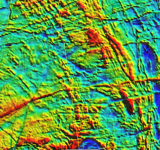 | GeoMap
|
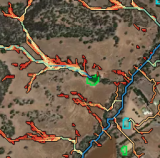 | Surface Water and Dams - Hydro Guide
|
WaterSmart Farms project gallery
The gallery below shows WaterSmart projects, demonstration sites and research areas. To see more detail view the project gallery.
Podcasts
To hear about dams, deep drilling and desalination of farms, listen to the WaterSmart Farms espisodes hosted on MADFIG’s ‘Farming in the Eastern Wheatbelt’ podcast series.
Project updates
Click below to hear the webinar 'WaterSmart farms resilience in a drying climate' from 12 July 2023.
Climate Action in Western Australia
Western Australia is taking significant steps to prepare for climate change and achieve net zero emissions by 2050.
There are various initiatives in place to support more opportunities in low-carbon jobs and new industries (such as renewable hydrogen, future battery and carbon farming).
Solar, wind, and other renewable sources of energy will power our homes and businesses. This paves the way for reliable and affordable energy for generations to come.
Adaptation is also a key response to manage in an increasingly variable climate. With a drier and hotter conditions, securing water in regional areas is critical to enable agriculture and sustain regional communities.
Find out more about how the WA Government is developing new water technology options through its WaterSmart Farms and related initiatives underway in WA, go to Climate Action WA.
Researching on-farm desalination in Western Australia
WaterSmart Farms will research sustainable groundwater supply options using on-farm desalinisation technology. Successful use of this technology using brackish groundwater will increase the ability of farms to weather dry seasons.
The 2020-2023 stage of the project is supported by $1.5m of Royalties for Regions funding and has three components:
- Understanding adoption of existing desalinisation plants that process brackish groundwater into a suitable resource for livestock, crop agronomy and other agribusiness activities ($200 000).
- Optimise desalinisation technology and its application in the Wheatbelt and Great Southern regions, including assessing the technology, economics and options for the disposal of RO reject water ($600 000).
- Undertake a targeted groundwater exploration program and where suitable, locate desalinisation trials ($700 000)
The project was initiated in response to growing industry requests to develop more climate resilient on-farm water supply options. The urgency for this work was highlighted by the number of water deficiency declarations with a record 12 water deficiency declarations in 2020.
Dry conditions over the 3 years to 2021 meant that on-farm dams and more traditional water supplies were not meeting needs, resulting in an unsustainable demand on scheme water, and more than $3.3 million spent on carting emergency water supplies for livestock.
The WaterSmart Farms project builds on work by the Department of Primary Industries and Regional Development, Water Corporation, Murdoch University and the Wheatbelt Development Commission to assess on-farm desalinisation infrastructure and the implications to businesses, regional economies and the environment.
The project involves relevant agencies, local government, farmers, grower groups and technology providers.

